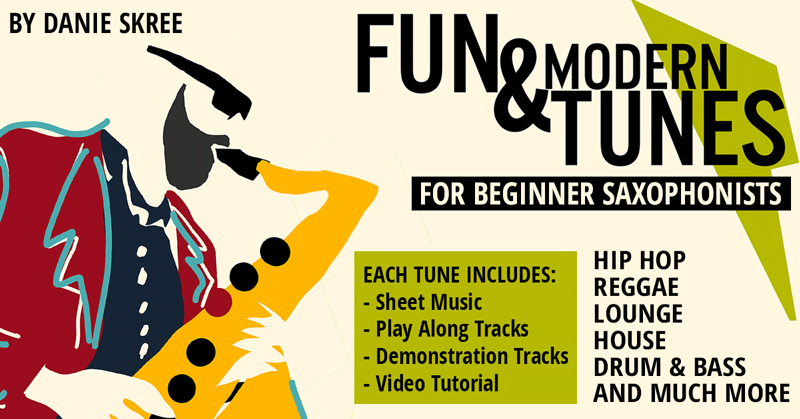A Saxophonist’s Guide to Professionalism

Once you have earned your first dollar, euro etc from playing music, you are now a professional. If you work as a full time, part time musician, composer, arranger, music teacher, or instrument repair tech, you are a professional. As such you need to act like a pro and you need to be aware of certain things.
There is Music and There is the Music Business
Let us assume that you are the leader of a small group that plays every Friday and Saturday night at the “Bucket of Grogg.” You, as the leader have certain business responsibilities. First, you must go to your city or county offices and buy a business license. The amount you pay is usually based on your projected earnings for the year. Here in Virginia Beach I pay$40.00 a year to conduct business. So far, this expense is still tax deductible.
Later in the year the Business License Office will send you a form, so you can list all the property that goes along with the business. This will include your horns, amps, sound system etc. Expect to be taxed for your business property. Therefore, the leader should get paid more per gig.
Making the Right Impression
You have the business license. Now you must negotiate a fair price for you to play at the club. This brings in another set of skills, the first skill being how you dress. You can never err by being slightly on the conservative side. No, you do not have to wear a suit. However, you should iron your shirt and pants, shave and brush/comb your hair. Maybe top it off with a nice Navy-Blue Blazer. Ladies dress neat and be conservative with your make up, jewelry and the length of your dress/skirt.
The next skill is to use standard English when you meet with the venue owner. Do not use jive talk or slang. Have a standard contract for the owner to sign. The local Musicians Union has some or you can design your own. If you are not in a Right to Work State then it is a good idea to join the union. I’ll talk more about that further on.
Next, let’s say you have played the gig and the venue owner has given you a check for the agreed amount. You pay the band by check from your business account. This way you have a paper trail of where your money went.
The next step is to make an entry in your accounting ledger. So, you must be able to do simple book keeping. You can Google this or take a course at a Community College.
You earned $650.00 for one night. You pay the other three guys $150.00 a piece leaving you with $200.00. You must now make your entry into your accounting ledger. This is very important. The accounting ledger keeps track of how much everyone earns. At the end of the fiscal year anyone who makes $600.00 or more must receive a 1099 Misc. form from you. The band members will use this form to show earned income when they file their taxes.
The band member who earns $450.00 will not receive a 1099 Misc. form. However, he should still file the $450.00 as earned income with the Internal Revenue Service (IRS).
Side Persons
Even if you are never a leader you still must report all your music earnings to the IRS. So, you too should have an accounting ledger book where you keep track of all the money you earn through gigs, teach arranging etc.
Everyone
Learn how to write a simple business letter, thank you card and a resume. At one point in your career you will need to use these skills.
Join the local Musicians Union. At one point it may be of help to you. Start going to meetings and helping. It may lead to a gig.
For example, at one point I was a member of Local 125 in Norfolk, VA. Because I was involved with the union I got called to play the “Four Tops Show” when they came to town. So, networking and hanging out can be very important.
Have a web presence where people can hear you play or listen to your compositions or your arrangements. You can go to www.bandmix.com/larry1261702 to check out my videos and sound clips. In addition, have a business card with your current phone number and e-mail address.
College students do not play for free, tips or drinks thereby under cutting the price that local professionals would earn. Be a pro yourself and respect what you are doing.
The Music Part
You have graduated from Music School and you are starting to play gigs for money. At this point you are now a professional. Go down to your local Union and join. As mentioned above networking is very important. So how do you act like a professional?
- Before you even leave your house test out your equipment. Michael Brecker said the following whilst working with my Navy Band in September 2003. “Before I leave the house I make sure that everything is working and that I have two really good reeds for my horn.” If that was good enough for Michael, then it is certainly good enough for the rest of us.
- There is nothing more unprofessional than getting to the gig and seeing a reed player going through a box of reeds hoping to find that magic reed. That should have been done at home.
- Be early. Practice this mantra – To be early is to be on time. To be on time is to be late. Being early will give you a chance to go over your part. Check out where you must switch to clarinet. Play over the section where the tricky rhythm is.
- Dress for the gig, not for yourself. When you get the call for the gig ask what the dress is. It could be a tuxedo, coat & tie, a polo shirt and khakis or even blue jeans and a ball cap. It all depends on the gig. So, make sure you ask.
- Ask the leader what the doubles are for your chair. Make sure you have at least two good reeds for each double.
- Make sure that you are playing your doubles and not just picking them up at the last minute. If your double is flute, make sure that you are playing flute well before the gig. Nothing sounds worse than someone who is struggling to play flute or clarinet on a gig.
- Bring a # 2 pencil with an eraser with you. This is especially true for shows as there are always cuts to be made. NEVER, EVER mark music in INK.
- Play your part and be a positive contributor to the band. If your job is to play the 2nd tenor part, 3rd trumpet,4th trombone, then do that and do it well. Do not be going up to the leader during rehearsal and try to steal the solos away from the 1st tenor player etc. This will make you look bad.
- During rehearsal, keep your mouth shut unless there is a glaring bad note in your part or you are missing a repeat sign etc. If you must ask a question, then do so respectfully. For example, “Mr. Basie at letter N is a repeat missing in the sax parts?”
I have been in two situations with nationally-known artists where one or more of the band members got into an argument about a repeat sign or a chord change. One situation involved a bass player who offered several different chord options than the chord on the paper. Another incident involved a missing repeat sign and two brass players in my Navy Band.
In both cases the people involved wasted 10 to 15 minutes of valuable rehearsal time. The bass player was told by the conductor, “What do you think that this is, high school where you can take the part home and bring it back next Tuesday? No, man, we’re playing this tonight so play what’s on the paper.”
In the other case the two brass players were told to mark in the repeat if it was missing instead of arguing with the artist. (I really think that egos got in the way with the brass players). In both cases, both artists told the players disrespecting the charts the same thing. Both artists said, “We just played these charts last week with an 802 band (AFM Local 802 in NYC) and everything went fine. So just play what is on the paper.”
- For the brass players the correct answer would have been, “Mr._____, where would you like the repeat sign?” This would have saved time and been the professional way to go.
- Do not bad mouth another player. If a player is not cutting it, it’s not your job to fix it. It is the leader’s job or the straw boss’s job. If you are the leader than next time do not hire that player. If you have a solo keep it in the style of the chart. Do not try to show off your latest Coltrane lick that you just learned on an eight-bar solo on a Pop ballad or a swing tune.
- Do not be rude to the customers or the audience. There are already not enough gigs. Do not be the reason that the next time the venue hires “DJ’s R’Us.”
- Remember, be professional, not a kid, even if you are just 22. Grow up and grow up fast. Also remember to keep your reeds slightly moist and keep playing.






October 25, 2018 @ 12:31 pm
Great advice written by a pro musician!
October 25, 2018 @ 1:36 pm
Thank you Paul. Hope everyone is well.
≫ https://www.bestsaxophonewebsiteever.com/a-saxophonists-guide-to-professionalism/
December 26, 2022 @ 1:32 pm
[…] A Saxophonist’s Guide to Professionalism […]